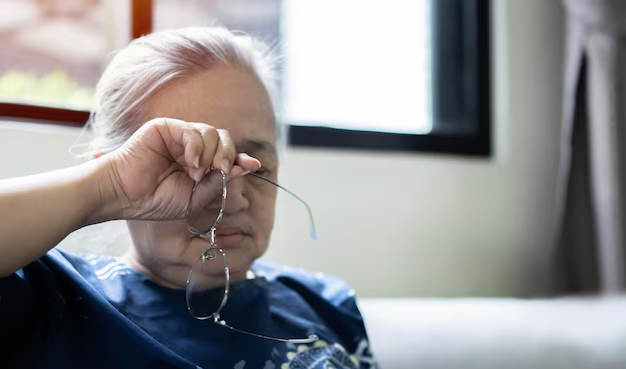Your Guide to How Do You Get Parkinson's Disease
What You Get:
Free Guide
Free, helpful information about Parkinsons FAQ and related How Do You Get Parkinson's Disease topics.
Helpful Information
Get clear and easy-to-understand details about How Do You Get Parkinson's Disease topics and resources.
Personalized Offers
Answer a few optional questions to receive offers or information related to Parkinsons FAQ. The survey is optional and not required to access your free guide.
Understanding the Causes of Parkinson's Disease
In the complex landscape of neurodegenerative disorders, Parkinson's disease (PD) stands out not just for its distinctive symptoms but also for the mystery surrounding its causes. While the precise mechanisms that lead to Parkinson's disease are not fully understood, researchers have made significant strides in identifying potential causes and risk factors.
What is Parkinson's Disease?
Parkinson's disease is a progressive neurological disorder that affects movement. It's characterized by tremors, stiffness, and difficulty with balance and coordination. The condition occurs when the nerve cells in the brain responsible for producing dopamine—a chemical messenger crucial for smooth muscle movements—either die or become impaired.
Potential Causes and Risk Factors
Genetics and Heredity
Research suggests that genetics play a role in about 10-15% of Parkinson's cases. Specific genetic mutations have been linked to the disorder, and having a family history of Parkinson's may increase risk. However, these cases are typically distinguished by an early onset.
Environmental Factors
Exposure to certain environmental toxins, such as pesticides, herbicides, and heavy metals, has been implicated in increasing the risk of developing Parkinson’s disease. Meanwhile, rural living, often associated due to its proximity to agricultural chemicals, is another risk factor.
Age and Gender
Age remains the largest risk factor for Parkinson's disease, with most people developing the condition around age 60 or older. Men are also more likely to develop Parkinson’s than women, although the reasons are not entirely clear.
Other Health Conditions
Certain health habits or conditions, like head injuries or reduced estrogen levels in women, might also contribute to the risk of developing Parkinson’s disease. Moreover, individuals experiencing depression or anxiety might have a higher likelihood of Parkinson’s onset. Whether these mental health conditions are risk factors or early symptoms is still under study.
Navigating Life with Parkinson's: Financial and Educational Resources
Once diagnosed, Parkinson's disease can come with significant financial burdens due to medical treatments and potential loss of income. Considering this, it is crucial to explore available resources and assistance to help manage the disease and its economic impact.
Government Aid Programs
Governments often provide aid programs aimed at supporting individuals with disabilities, including Parkinson's. These may cover medical costs or provide disability benefits, which can be crucial for anyone who can no longer maintain full-time employment.
Financial Assistance and Debt Relief Options
Many nonprofit organizations and institutions offer financial aid and grants specifically targeted at those with Parkinson’s disease. Options include low-interest medical loans and debt negotiation services to alleviate the strain of medical bills.
Educational Grants and Resources
For younger individuals or caregivers pursuing education in healthcare as a result of their caregiving duties or personal experiences, there are scholarships and educational grants available. These not only help financially but provide knowledge empowerment, equipping families and communities to better manage the demands of life with Parkinson’s.
Exploring these resources can help reduce the overwhelming financial burden while allowing individuals to focus more on health and wellness. Staying informed and proactive in seeking assistance can make a significant difference.
Explore These Assistance Options:
- 📋 Disability Benefits: Check eligibility for government-supported disability income.
- 💰 Medical Grants: Investigate grants targeted at helping with medical expenses.
- 🤝 Nonprofit Support: Reach out to Parkinson’s disease organizations for resources.
- 🏫 Educational Scholarships: Look for scholarships for caregivers and those studying health science.
- 💳 Debt Relief Solutions: Consider consulting with debt relief agencies that specialize in medical debt.
Understanding Parkinson's disease is the first step to managing it effectively. By leveraging available resources, individuals and families can alleviate some of the pressures that come with living with Parkinson’s, allowing a greater focus on quality of life.
What You Get:
Free Parkinsons FAQ Guide
Free, helpful information about How Do You Get Parkinson's Disease and related resources.

Helpful Information
Get clear, easy-to-understand details about How Do You Get Parkinson's Disease topics.

Optional Personalized Offers
Answer a few optional questions to see offers or information related to Parkinsons FAQ. Participation is not required to get your free guide.


Discover More
- Are There Environmental Causes Of Parkinsons
- Can Alcohol Cause Parkinson's
- Can Concussions Cause Parkinson's
- Can Concussions Cause Parkinson's Disease
- Can Dogs Get Parkinson's Disease
- Can Dogs Get Parkinsons
- Can Dogs Have Parkinson's
- Can Dogs Have Parkinson's Disease
- Can Females Get Parkinson Disease
- Can Head Trauma Cause Parkinson's
